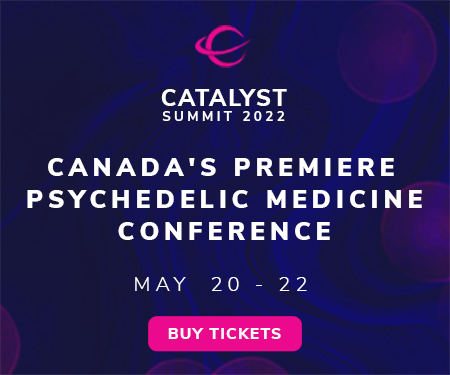- A new digital medicine division Albert will further MindMed’s research into psychedelic treatments.
- Digital health uses technology such as wearable sensors to personalize patient care.
- MindMed said it intends to use digital therapeutics alongside pharmaceutical medicines to maximize benefits to patients and the healthcare system.
Psychedelic medicine biotechnology company MindMed has announced it is establishing a digital medicine division to be known as Albert. MindMed said in a statement, “Albert is in the process of assembling and recruiting a leading team of technologists, therapists, and clinical drug development experts to help the company research, develop and build an integrated technology platform and comprehensive toolset aimed at delivering psychedelic-inspired medicines and experiential therapies combined with digital therapeutics.”
The company said “pairing digital tools, such as wearables and the latest in machine learning, with psychedelic-assisted therapies, can give healthcare providers the ability to optimize and better understand the patient journey and therapeutic outcomes from pre-care to after-care.”
What is Digital Health?
As digital technology has become portable and affordable, medical researchers have begun using these tools to fill gaps in patient care by making the delivery of medicine more personalized and precise. The digital health field emerged around 2007 when smartphones entered the market and introduced technology platforms such as telemedicine, wearable sensors, and hand-held imaging devices. It includes medication adherence monitoring, with the FDA in 2012 approving the use of an ingestible sensor that tracks when a patient takes their medication by wirelessly connecting to an external recorder which records the date and time of ingestion. Also increasingly prominent are smartphone health apps, of which there were more than 160,000 available in 2016.
While the potential of the field has garnered enthusiasm, many technologies are yet to be studied in a clinical setting and questions remain over the effectiveness of digital technologies in generating clinically meaningful data. Concerns have also been raised around technologies that can store and share sensitive information about patients such as their medicine-taking behaviour.
Albert’s Role in MindMed’s Research
MindMed is developing a pipeline of treatments based on psychedelic substances including psilocybin, LSD, MDMA, DMT, and ibogaine derivative 18-MC. Under the leadership of president and clinical head Miri Halperin Wernli, MindMed’s clinical team is currently designing an experimental clinical trial that pairs non-hallucinogenic psychedelic-inspired medicines, such as microdoses of LSD, with digital therapeutics to track, engage and influence patient behavior. The company intends to announce full details of the trial once its protocol design has been submitted to the relevant regulatory bodies.
“This is a perfect moment for digital medicine solutions to come to patients to help support behavioral change, measure and enhance psychiatric care and health outcomes,” Wernli said in the statement issued by MindMed. “Our intention is to use digital therapeutics alongside pharmaceutical medicines to maximize one another’s value to the patient and for the healthcare system.
“The two classes of medicine, along with psychotherapy and various forms of cognitive-behavioural therapies, must be regarded as complementary to enhance outcomes, which will create new opportunities to improve quality of care and patient outcomes and drive behavior change at scale.”
In the same statement, MindMed co-founder and co-chief executive officer J. R. Rahn said the company believed the next frontier in psychedelic medicine would be “to quantify with great precision psychedelic-assisted therapy’s impact on patient populations.”
“This new division will not only build apps, technologies, and other platforms to help the patient but hopefully also make the medical community comfortable with this novel treatment paradigm for mental health and addiction by measuring the potential value to their patient populations and ultimate savings to insurers,” Rahn said.
Update 26/2/2021: check out a MindMed company update here.
















